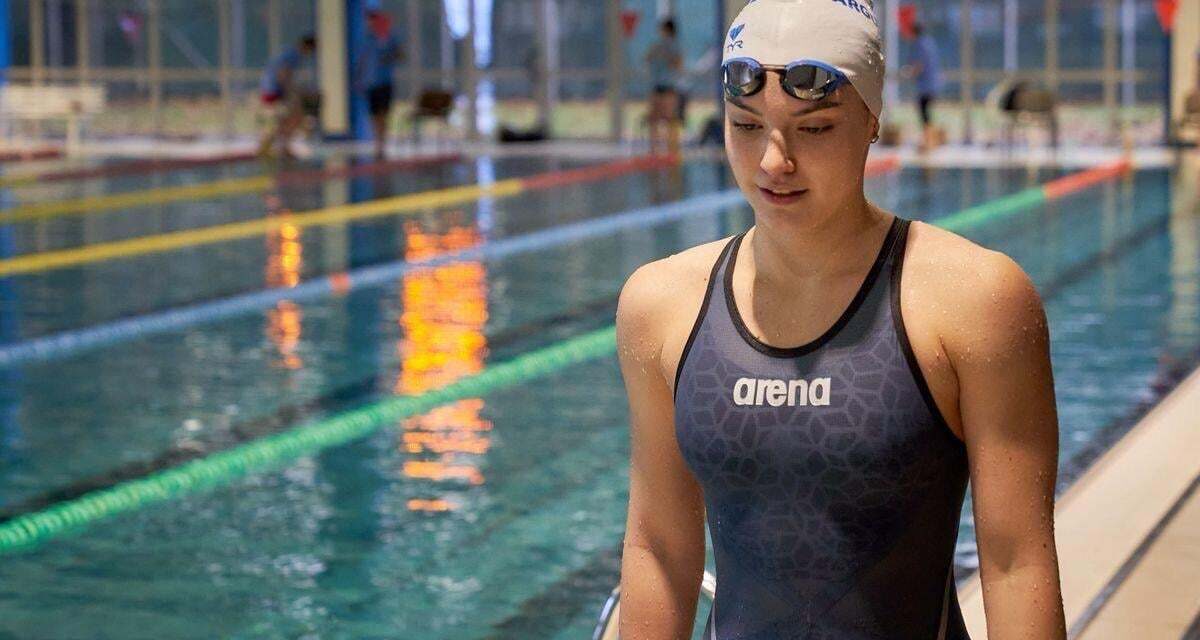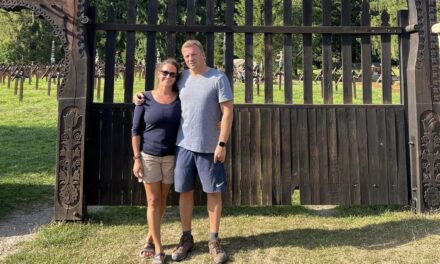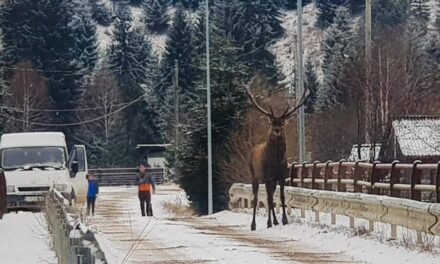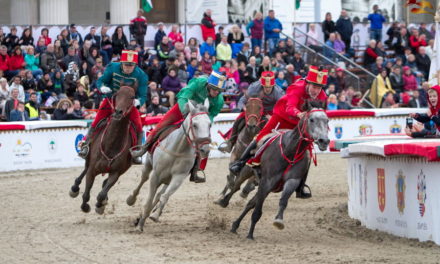Nóra Sántha, the 16-year-old swimmer from Marosvásárhely, wants to be there at the next Olympics. Interview.
She started swimming at the age of six, and today Nóra Sántha is considered one of the great hopes of her hometown. At last year's short-track national championship, he won a total of 12 medals, which no athlete from Marosvásárhely had previously achieved. He wants to surpass this performance this year, and is happy to devote his time to preparation. Although in recent years he has received a lot of disparaging and negative opinions, his family and friends have helped him a lot in not taking them personally, and today he does not deal with them at all.
Nóra Sántha was born in 2008 in Marosvásárhely. His swimming career so far has brought him many good time results and podium positions at the national level. His last competition was the Romanian Cup in July, from which he returned home with five medals.
When did you start swimming and how did you fall in love with the sport?
It started ten years ago, when I was six. My father and I went to play a lot because my parents wanted me to exercise. We were sitting in the water and a coach passed by us. My father asked me if he could talk to him, and I told him, no. He finally went up to her and talked to her. I signed up for it. At the beginning, we thought it would be good to learn to swim so that when we go on vacation, I can float on the water.
After a month or two, the coach said I could try competitive swimming because he thought it would be worth it. Since then, I have grown to love it, my everyday life has become routine, I can easily allocate my time, this is one of the most important things.
What was your first memorable competition experience, which motivated you to continue?
Every competition is progress, even participation counts a lot. I would highlight my very first national championship, I was not yet ten years old at the time. I won my first medal at this level in the 50m butterfly. The point was not how many times I finished, but the feeling when I was really shocked. No one in the family played sports, so the result was quite unexpected.
A lot of people said that I shouldn't be upset if I don't win because there won't be any competitions yet, but I didn't really listen to those people. My parents, in particular, helped me a lot not to take them on. I managed to do well in the end, I did not expect such a result to be achieved at all. Since then, I haven't had a single national competition where I haven't achieved some sort of ranking.
Last fall, you won twelve medals at the short-track national championship, which no athlete from Marosvásárhely had previously achieved. How did you experience that competition?
This was also a completely unexpected result. None of the medals are gold, which I really regret, but I didn't take it as being sad about it. All my strong opponents were there and there was a lot of pressure. I didn't swim twelve times, but since I belong to the smallest age category, I get a medal even if I beat the older ones in terms of time.
When I got out after the last final, one of my teammates asked me how it went. I told him, not so well, but I have my twelfth gold medal. I look back on this experience happily. Since then, I have noticed during training that the little ones look up to me more. Many people stand by me and motivate me.
You recently participated in the Romanian Cup, which you ended with five medals. How do you evaluate that performance from the perspective of a few days?
Considering the conditions, I performed well, but I would have expected better in some numbers. I'm mainly thinking about the time result, but before that I had some health problems. Overall, the race was good and many people were with me.
In terms of swimming styles and numbers, which one do you feel the most comfortable for numbers?
I would definitely say freestyle and butterfly, I like short distances of fifty or one hundred meters. It would be more difficult to determine in which one I will be the best in the long run. Two years before that, I didn't swim 50 meters at all, but half a year later I became a national champion. My heart is drawn to the butterfly, my old coach also took me to it because it is the most difficult type of swimming and I learned it earlier than his other students.
How much time do you spend preparing each week?
I really like what I do, I don't realize that I spend a lot of time on it. My mother used to tell me that this might be too much, that I shouldn't go to the other training, because I used to do twelve a week. Each is two hours long. I don't feel the weight of it, it obviously makes me tired, but I'll put that aside. I have a very good friend and swimming partner, Melinda Sárkány, with whom I go to both dry and water training.
What goals have you set for this year and for your long-term career?
My next national championship, our short track, will be in November. I reached my highest point there a year ago, but I feel that this can still be surpassed this year. There will be a European Championship in December, which I would like to attend. There was a situation before where I could have gone, but there were minor problems, then I couldn't.
Looking at long-term goals, I want to be there at the next Olympics, which is realistic in my mind, if not in others'. In four years, I'm about to finish school, if I prepare a lot, more than this season, I think I can get there.
You mentioned that you've received criticism and negative feedback about sports in the past. Have you learned to handle this?
I always have and always will. They come from all over. There is someone who calls himself my friend and thinks we are close, yet he tries to drag me down. I don't take these things up anymore, there were a few cases that got rough. I never get angry about these things, but I didn't understand why I got them. In the beginning, I took it more on myself than I do now, but my parents and friends helped me a lot to get through it all.
Featured image: Nóra Sántha's personal archive













